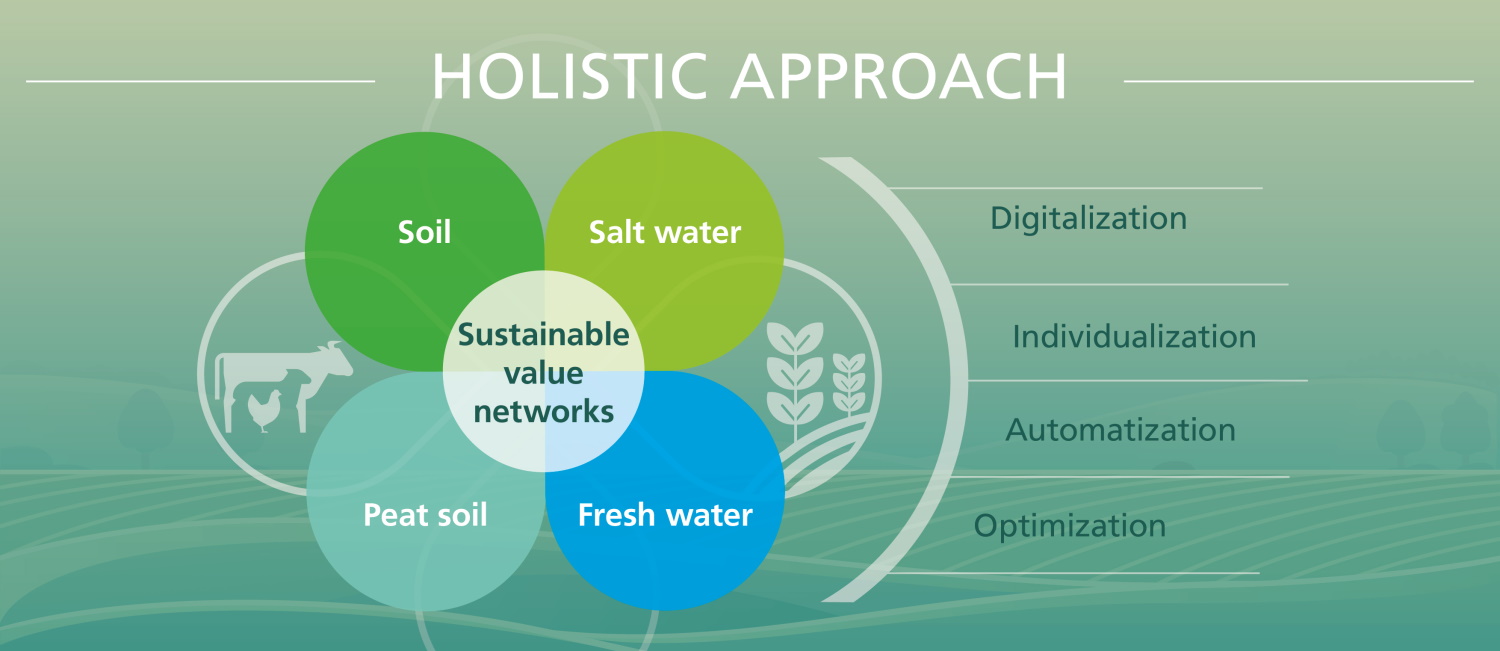
Initiative for Biogenic Value Creation and Smart Farming

A step towards a more sustainable agriculture and food industry
The Fraunhofer-Gesellschaft and its Initiative for Biogenic Value Creation and Smart Farming are using the combined expertise of five Fraunhofer institutes to plan the entire food value chain in order to reorganize it in terms of sustainability as well as to aid businesses in the food industry with their transformation process. The center is organized into two smaller initiatives across several offices in Bavaria and Mecklenburg-Vorpommern. The research and development of innovative technologies for the sustainable production and processing of agricultural products, i.e., the increase of biogenic value creation, takes center stage here.
Fraunhofer IVV is starting with a range of selected projects for the sustainable, resource-efficient use of our regional raw materials.
Teaming up for a common goal
The interdisciplinary team of scientists contributes a wide range of expertise from the sectors of robotics and automation, sensors, analytics and actuators, AI and big data, as well as construction, production and process engineering. The objective is to consolidate the core areas of expertise and tackle complex, system-related challenges for various sectors of the agricultural and food industry – and to do so alongside regional and supra-regional collaboration partners from industry, science and research. An additional focus is the transfer of university and non-university research into practice.
Biogenic value creation on land and at sea

Resource-efficient agriculture and processing
We are conducting research so that agricultural products and biogenic raw materials can be produced and used more sustainably, thereby advancing the politically driven paradigm change towards ecological and resource-efficient agriculture and production. With the development of intelligent technologies, we are laying the foundations to provide the optimum growth conditions for livestock and plants so that production is highly efficient, both ecologically and economically.
Sustainability goals
The Center for Biogenic Value Creation and Smart Farming addresses the following EU sustainable development goals (SDGs) in particular in order to make a signification contribution to sustainable development:
- SDG2 - Zero hunger
Food security on the basis of sustainable agriculture
- SDG3 - Good health and well-being
Health and well-being for all at all ages
- SDG 6 - Availability and sustainable management of water
Ensure availability of water and sustainable management of water
- SDG 9 - Industry innovation and infrastructure
Build resilient and sustainable infrastructure and foster innovative developments in industry
- SDG12 - Responsible consumption & production
Promote responsible consumer behavior and sustainable production processes
- SDG15 - Life on land
Sustainable use of terrestrial ecosystems and halt the loss of biodiversity

 Fraunhofer Institute for Process Engineering and Packaging IVV
Fraunhofer Institute for Process Engineering and Packaging IVV